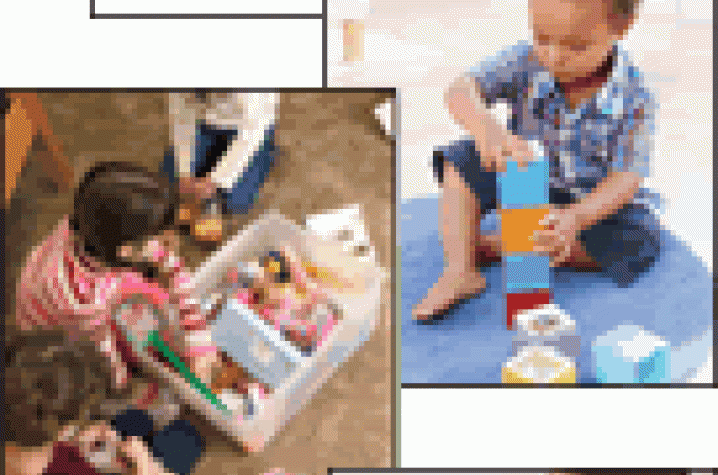Seasonal Safety: Be Safe When Buying Toys

LEXINGTON, Ky. (Nov. 6, 2009) – Each year, more than three billion toys and games are sold in the United States, with 65 percent of these sales occurring between the day after Thanksgiving and the day before Christmas.
With millions of toys being recalled in recent months for having lead paint or dangerous magnets, it’s important to remember that the vast majority of toys are safe. It’s no wonder, though, that parents and caregivers are nervous this year as they head into the biggest toy-buying season.
"Safe Kids Fayette County wants to make this holiday toy-shopping season as worry-free as possible while making sure shoppers are educated and vigilant," said Sherri Hannan, coordinator of Safe Kids Fayette County. "We want to offer parents and caregivers the information they need to keep their children safe and happy -- exactly what the holidays are all about. Before you head out to shop for toys this holiday season, take a look at these easy tips and keep them in mind for all the good little girls and boys on your list."
E-mail alerts keep shoppers up-to-date on recalls
Each year, approximately 217,000 toy-related injuries are treated in hospital emergency rooms nationwide. But on average, only 15 children under the age of 14, die from a toy-related injury, most of which are caused by choking on small parts.
To stay informed, Hannan recommends that parents sign up for e-mails that will keep them up-to-date on recalls. “It's too difficult to get your information piecemeal from TV, radio or the newspaper,” said Hannan. “So if you get the e-mails sent to you each time a recall happens, you'll be up-to-the-minute and won't have to worry.”
To sign up for recall e-mails, go to www.cpsc.gov and click on "sign up for email announcements."
Parents and caregivers shouldn't hesitate to report defects or design features that seem dangerous. “If your child has a close call, the next child might not be so lucky,” said Hannan. “Report safety concerns about toys to the Consumer Product Safety Commission at (800) 638-2772 or www.cpsc.gov . Your experience could be part of a pattern that might lead to a recall.”
Avoid purchasing recalled toys
Hannan reminds parents that most toys are safe, but it's best to buy from a reputable retailer. That doesn't mean you have to go to a ‘big box' store, but if you shop at a locally-owned toy store, make sure that the owner is aware and vigilant about getting recalled items off the shelves. And avoid used toys, which could have been recalled and not removed from circulation.
“If you buy toys secondhand or get hand-me-downs, visit www.cpsc.gov to make sure the toy hasn't been recalled for safety reasons. If a new toy comes with a product registration card, mail it in right away so the manufacturer can contact you if the item is ever recalled.”
Other precautions to take
- Make sure to buy age-appropriate toys. All toys are clearly marked if they have small parts; do not buy toys with small parts (or allow a child under age three to play with those kinds of toys belonging to an older sibling).
- Identify dangerous small parts. To be sure of a toy's size, use a small parts tester (available in quantity from the Safe Kids resource catalog). If you don't have a small parts tester, you can use an empty toilet paper roll. Do not let small children play with anything that can fit into any of these cylinders.
- Inspect toys to make sure they are in good repair. Do not let young children play with toys that have straps, cords or strings longer than seven inches, due to the risk of strangulation.
- Actively supervise children. Caregivers should actively supervise children playing with any toy that has small parts, moving parts, electrical or battery power, cords, wheels or any other potentially risky component. Simply being in the same room as your child is not necessarily supervising. Active supervision means keeping the child in sight and in reach and paying undivided attention.
- Practice proper storage. Teach children to put toys away after playing, to help prevent falls and unsupervised play, and make sure toys intended for younger children are stored separately from those for older children. Toy chests should be equipped or retrofitted with safety hinges that prevent the lid from closing on a child who is leaning over the open chest; if a chest does not have safety hinges, remove the lid.
About Safe Kids Fayette County
Safe Kids Fayette County works to prevent accidental childhood injury, the leading killer of children 14 and under. Its members include health and safety experts, educators, community leaders, corporations, foundations, government representatives and volunteers to educate and protect families. Safe Kids Fayette County is a member of Safe Kids Worldwide, a global network of organizations dedicated to preventing accidental injury. Safe Kids Fayette County was founded in 1994 and is led by Kentucky Children's Hospital.
For more information, contact Safe Kids Fayette County at (859) 323-1153 or srhann2@uky.edu or go to Safe Kids USA toy safety site at http://sk.convio.net/site/PageNavigator/Campaigns/ToySafety/campaignToySafety.




